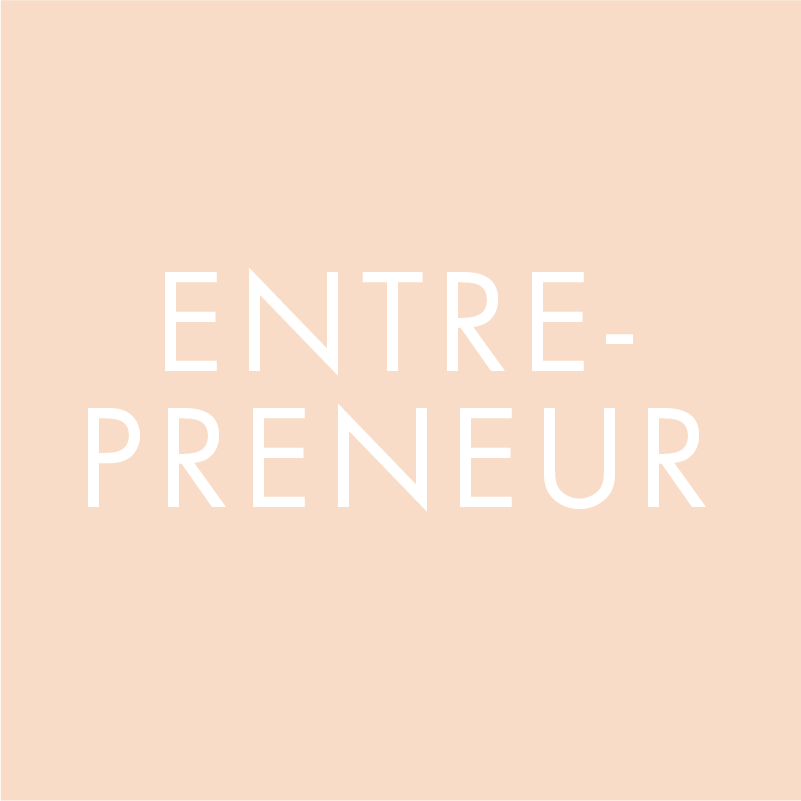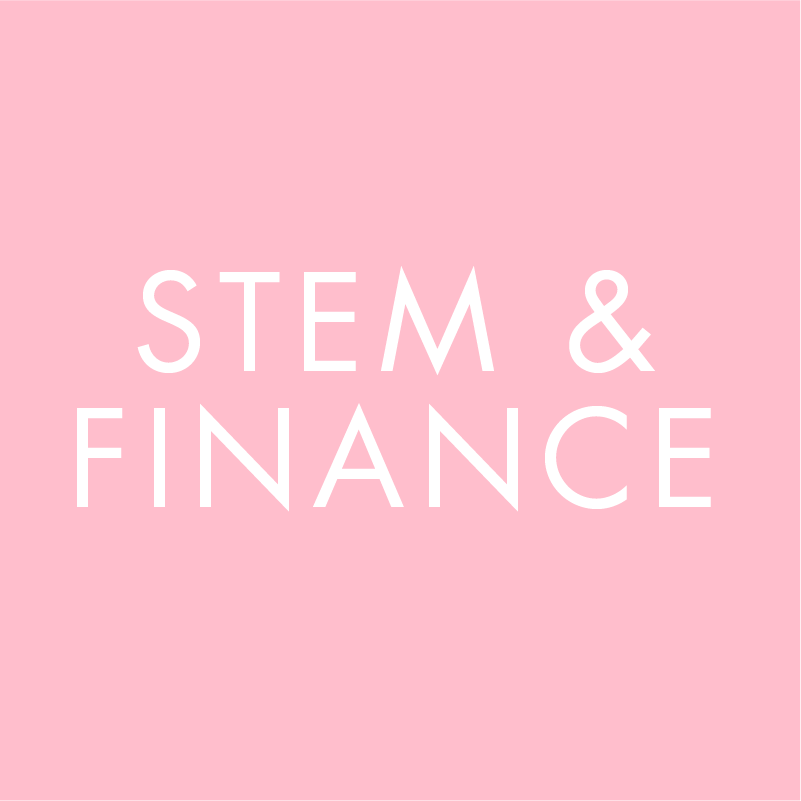There’s a reason that scientists rarely join the pop culture zeitgeist.
“Becoming famous for talking about science is considered self-promotion, even if you're promoting science," says Dr. Katherine J. Mack. But that hasn’t stopped Dr. Mack, who goes by @AstroKatie on Twitter, from using her supernatural talent for breaking down theoretical astrophysics to the general public. And it’s getting her more than a blue checkmark on Twitter— she’s gaining notoriety in a field typically reserved for mid-career men and those who have achieved the field’s crowning peak: a permanent, tenured research position.
But for the self-described astrophysicist/cosmologist, occasional freelance science writer, and connoisseur of airplane food, social media has becomes a vehicle to build her hyperspecific, dark matter-powered personal brand. She understands trolls and clapback culture in a way most scientists could never, and it’s earned her high praise from the likes of J.K. Rowling.
She knows it’s not typical for a scientist to become a social media celebrity, but she sees her public position as a way to direct attention to the field to empower women in STEM careers.
What inspired you to be a cosmologist? Was there a pivotal moment in your life where you realized what you wanted to do?
I’ve always been obsessed with figuring out how things work. When I was a kid, this prompted me to do things like take apart radios or try to build little solar-powered cars out of Legos, but when I learned about things like black holes and spacetime and the Big Bang, I knew I wanted to know how the whole universe works. I’m not sure there was any pivotal moment exactly, but I have vivid memories of going to public talks by people like Stephen Hawking and Paul Davies and being completely fascinated by the kind of things they got to spend their time thinking about. I wanted to do that too.
Can you tell our Create & Cultivate readers a little about the work that you do & any projects that you’re currently working on?
I do theoretical cosmology. Cosmology is basically the study of the whole universe, from beginning to end, on the largest scales and including how it evolves over time. The theoretical part means I don’t use telescopes or do experiments, but rather do my work mostly in equations and computer programs. Because understanding the universe means understanding the fundamentals of physics, I also spend a lot of my time thinking more about the physics of the very very small – particles and fields and things. When you’re trying to understand EVERYTHING, it has a way of pushing you to the boundaries, on both ends of the scale. So I’m really interested in the big questions: where did it all come from, where is it going, what is the universe made of and why does it work the way it does. Of course, you always have to specialize at some point, but in cosmology, even when you’re focused, you can still be incorporating a lot of big fun ideas. My main research work these days is on dark matter (the mysterious, invisible substance that makes up something like 85% of the matter in the universe), how galaxies formed and evolved over time in the early stages of the universe, and the end of the universe – how the cosmos will eventually die. One of the things I really love about this kind of work is that there’s lots of room for creativity, and I get try all the time to think about things in new ways, to figure out how we can learn about these big foundational ideas using the kinds of data we can get from telescopes or experiments.
You’ve built a massive online community. When did you start to see growth & why do you think Twitter has become your go-to platform?
I’ve been on Twitter for a long time, and aside from a few rather sudden shifts, it’s been a pretty steady thing. I feel like Twitter as a platform is perfect for the way I like to talk about science, because it’s well suited to short, pithy statements with maybe a link or a picture attached. It sounds weird to say it, but writing tweets, especially if you want them to connect with people, is a kind of a literary form. It’s a real challenge to get meaningful, intriguing information, or any kind of statement that people will want to share, into a small number of characters, and it can really help you hone your communication skills. I really enjoy the challenge of it, and I like to practice my writing and try to amuse or intrigue or fascinate or delight people. It’s a lot of fun when it works, and the kinds of interactions you can have there with people can be really great.
“There are always SO MANY THINGS to study and to investigate in cosmology, so finding a new project or idea is never difficult. The harder part is getting deep enough into a topic to make a meaningful contribution, and not getting distracted by the latest shiny thing before you’ve finished.”
How has social media helped with sharing your knowledge to your followers?
I guess it’s really a two-part thing. One is that using Twitter to talk about science has given me a lot of practice talking about science – it’s made me think deeply about my work, and it’s prompted me to learn a lot of things in other areas of physics and astronomy that I might not have spent time on. But the fact that it’s a social medium means that I get very clear, instant feedback on anything I’m sharing, so I learn very quickly what kinds of things are confusing, or where I might accidentally mislead people if I’m stating something in an unclear way. It’s made a big difference in helping me with my other writing (in blogs, magazines, and the book I’m currently working on) and in my public speaking. I know what kinds of explanations work well because I know what gets positive responses (and not too much confusion) on Twitter, and I know what really blows people’s minds because on Twitter, they tell me.
What is one app you can’t live without and why?
Twitter, and it’s probably not a good thing. I know that it can be a pretty toxic place sometimes, and it certainly can be a massive time sink, but at the same time, there are a lot of really wonderful clever people on there and I’ve had such a great time connecting with people. Other than that… I listen to a lot of podcasts and audiobooks, so Overcast and Audible are certainly near the top of my list. I’m pretty much always listening to something. There’s a lot to be said for being in the moment and aware of your surroundings and all that but also there’s just so much information in the world and I want to consume all of it.
When you hit a bump or hurdle in your career, how do you find a new road + switch gears to find success?
There are a lot of bumps and hurdles in academia. There’s a lot of rejection and failure just sort of built into the system. You have to try to become inured to it, or at least to be able to accept the lessons without losing your whole sense of self-worth. It’s not easy. And I think for most of us in academia, we go through periods where we feel like we’re not cut out for this. But it helps to share stories and get advice from your peers and mentors and realize that everyone goes through this stuff from time to time. As for switching gears, that’s almost too easy. There are always SO MANY THINGS to study and to investigate in cosmology, so finding a new project or idea is never difficult. The harder part is getting deep enough into a topic to make a meaningful contribution, and not getting distracted by the latest shiny thing before you’ve finished. But really the confidence and the success (when it comes) is largely a result of trying not to pay too much attention to anything other than the work, and just doing what you can. (And a healthy amount of luck, too, obviously.) If you’re gonna crash out, you’ll know, so in the meantime, keep at it and make the most of the opportunities you have. I keep thinking eventually this whole academia thing will stop working out but so far I’m still here and it’s really going pretty well.
“The most exciting part of research is when you learn something really new and interesting. It doesn’t happen very often that it’s a real breakthrough, but making a new connection between two ideas or understanding something for the first time in a new way can be amazing.”
What are you most excited for in 2019?
I’m writing a book about the end of the Universe, called “The End of Everything.” It won’t be published until 2020, but the manuscript is due in 2019 and I’m just really excited about the prospect of having it all together in one place, as a complete piece of work. It’s a lot of fun to write, so far, and I can’t wait to get it out into the world. I’m also doing a massive amount of travel in 2019 (some of it connected to book things) and some of those trips should be a lot of fun.
What about your job makes you feel the most fulfilled?
The most exciting part of research is when you learn something really new and interesting. It doesn’t happen very often that it’s a real breakthrough exactly, but making a new connection between two ideas or understanding something for the first time in a new way can be amazing. The other thing I love about my job is just talking to other people about cosmology. Sometimes it’s colleagues, where we’re bouncing ideas back and forth, and sometimes it’s students or even people outside academia. I love it all. I feel like I’m the sort of person who is smarter when I’m in conversation than when I’m just mulling things over on my own. And luckily, my job isn’t anywhere near as solitary as one might imagine. I’m constantly giving talks, going to conferences, and talking with collaborators, in addition to all the teaching and public science. There are lots of opportunities to just think out loud, and I love that.
What’s the best piece of advice you’ve ever been given?
At various times in my life, in the midst of job applications or at other times of uncertainty, I’ve heard the advice that instead of trying to conform to some ideal of the position you’re looking for, you should focus on the strengths you have that make you unique. In my case, that meant that instead of trying to be a head-down physics-publication-machine, I should probably embrace the non-traditional part of what I do and pitch the work I’ve done in science outreach as an asset. And that worked out, but even if it hadn’t, I’m not sure I would have been happy in a job that didn’t let me participate in that kind of work. But really just in general, a lot of the most successful people I know (by their own subjective definitions of success) are people who have discovered the thing that they can do better than anyone else, and built a career around that. It’s not always possible to do this, of course – I always hesitate to give advice about careers or success because I know that most of the advice you get is based on a combination of privilege and survivor bias – but if you’re in a position where you can plausibly carve out a niche for yourself, you might be surprised at the kinds of things that can ultimately pay off. If you have some really unique talent, don’t write it off as frivolous right away just because it’s not what people might expect to see.
What’s been the biggest surprise or highlight of your career to date?
The biggest surprise has probably been all the opportunities to travel and meet amazing people. When I first started thinking about getting into physics, I imagined there would be a lot of sitting around writing out equations in an office (and there is a lot of that!) but I didn’t count on the part where I would travel the world going to conferences and collaboration meetings and giving talks. The first research project I ever got involved in was in Japan; a few years later I was doing a summer project in Germany. I’ve held postdoctoral fellowship positions in the UK and Australia, and I’ve gone to conferences and workshops and done teaching gigs and public science things in more countries than I can even keep track of, on five continents. It’s been a real adventure.
















